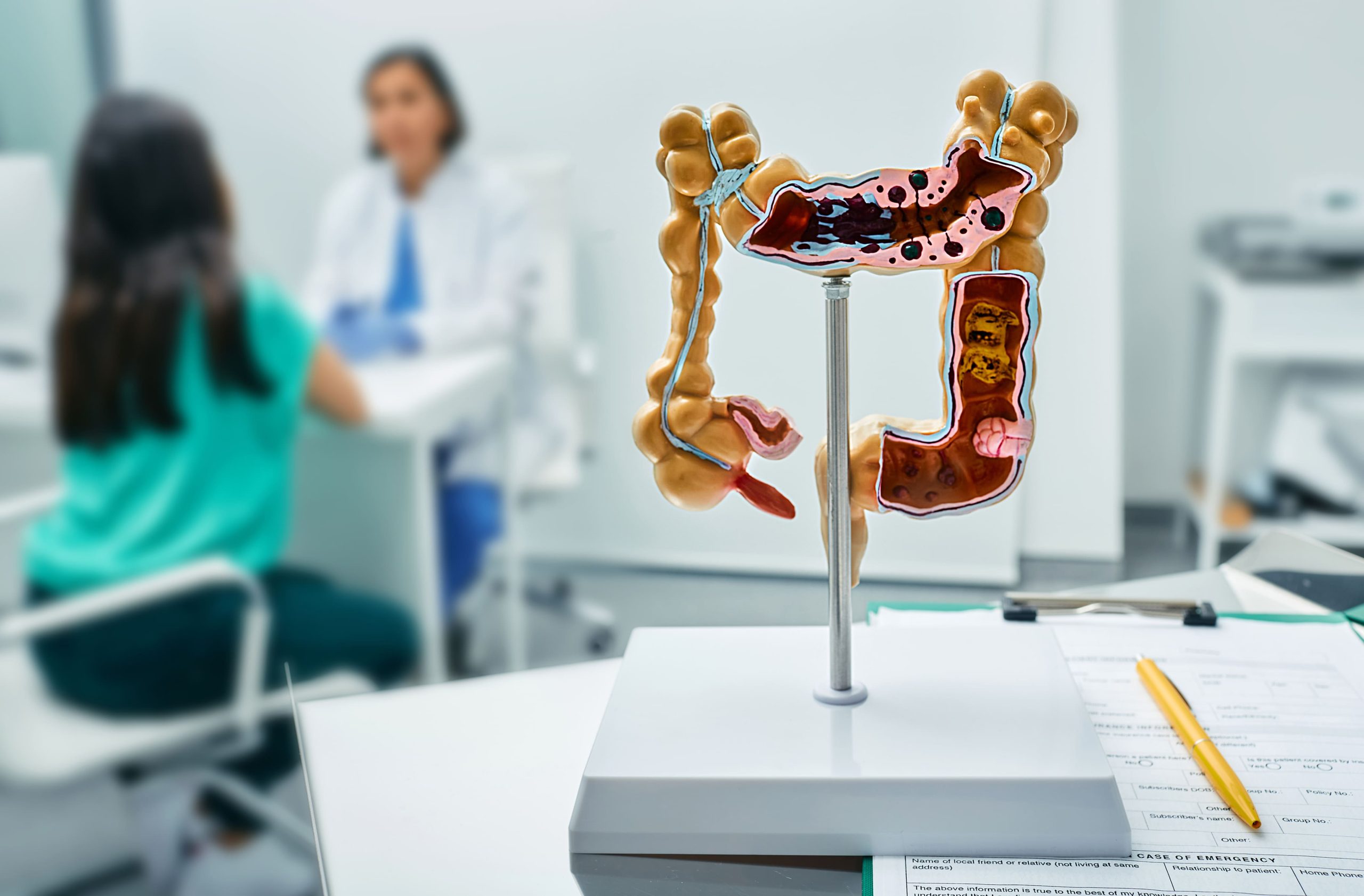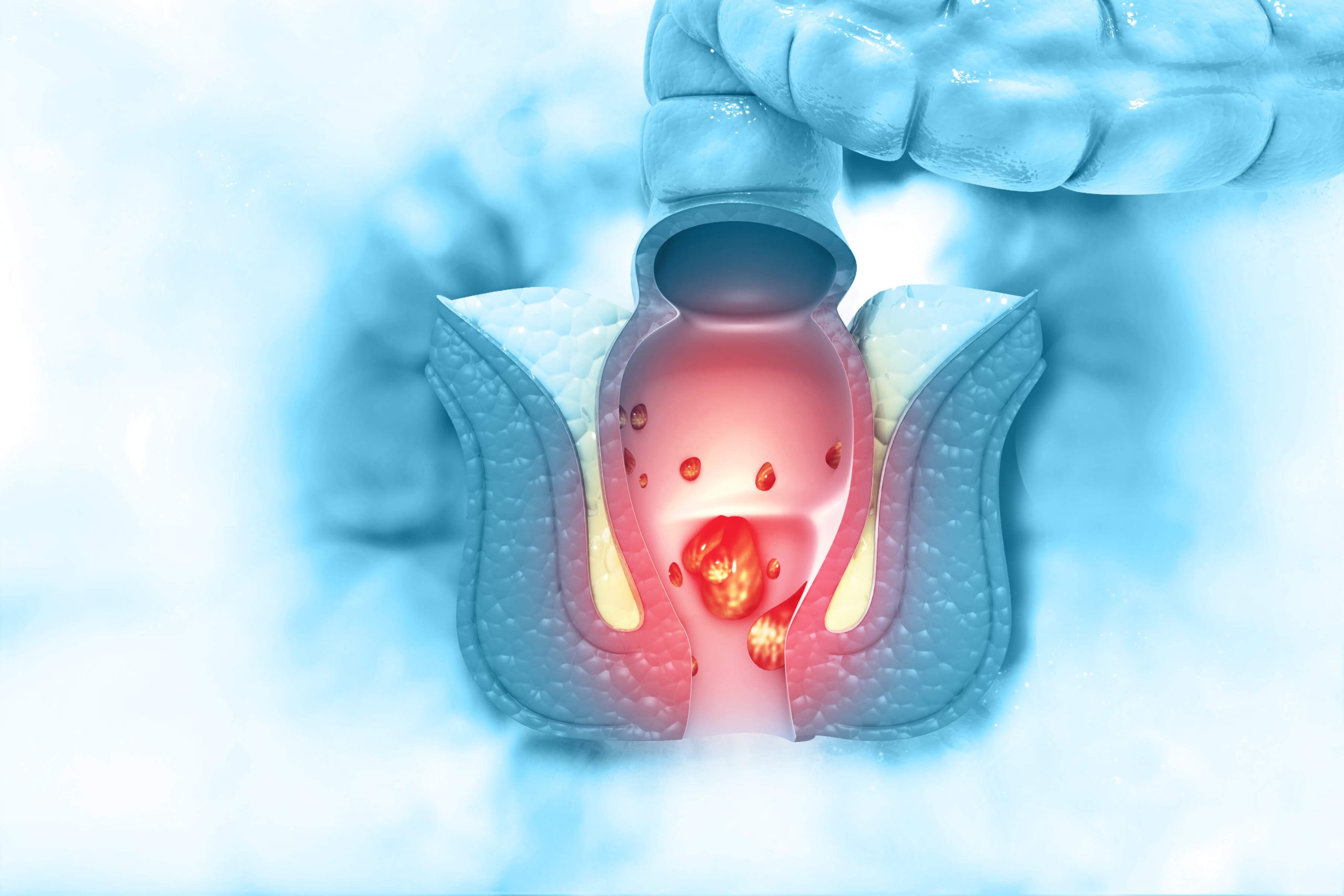Colorectal Health
5 Ways to Help Prevent Colorectal Cancer

Colorectal cancer (also called colon or rectal cancer) is cancer that develops in the large intestine or rectum, which are both parts of the digestive system. According to the Singapore Cancer Registry, colorectal cancer is the top cancer among men (about 1 in 6 patients) and the second most common cancer in women (about 1 in 7 patients). It is important to know what you can do to take good care of your health and prevent colorectal cancer.
How does colorectal cancer develop?
Colorectal cancer (colon cancer) occurs from the abnormal and uncontrolled growth of cells in the inner walls of the colon or rectum. These cells may grow into small, non-cancerous (benign) lumps called polyps. If left untreated, these polyps may mutate and turn cancerous (malignant), resulting in colorectal cancer.
Signs and symptoms of Colorectal Cancer
Colon cancer is generally asymptomatic in its early stages. When the symptoms start to show up, chances of treatment is dependent on the local extent and stage of the cancer. Some common signs and symptoms of colorectal cancer include:
- Fatigue, lethargy and unexplained weight loss
- Abdominal discomfort and pain
- Sudden change in bowel habits
- Blood in stools
- Constipation/diarrhoea
What can you do to help prevent colorectal cancer?
While there is no proven way to completely prevent colorectal cancer, you may be able to lower your risk. Certain risk factors such as age and family history cannot be changed, but health screening and lifestyle modifications to your diet, coupled with regular exercise and maintaining a healthy weight can certainly help reduce your risk of getting colorectal cancer.
Here are 5 tips to help you prevent the disease:
1. Get screened for colon cancer regularly
Regular colorectal cancer screening is crucial in preventing and detecting colorectal cancer, especially in its early stages. In fact, colorectal cancer is highly preventable and treatable if diagnosed early when polyps are still benign. Benign polyps typically do not cause any noticeable symptoms until they turn cancerous. Even if the polyps have turned cancerous, early detection through regular screening will allow them to be removed quickly before they can spread to other parts of your body.
As a general guide, you should begin screening for colorectal cancer as soon as you turn 50 and continue to screen regularly, depending on your family history and risk factors.
If you belong to the average-risk group, it is recommended that you start screening when you reach 50 years old, followed by an annual stool test and a colonoscopy every ten years.
If you have a personal or family history of colorectal cancer, experience symptoms of colorectal cancer or you have been leading an unhealthy lifestyle (high-fat diet, minimal exercise or excessive drinking/smoking), you can be considered to be in the high-risk group.
For high-risk individuals, it is recommended that you undergo screening early, before 50 years old.
Consult a colorectal specialist if you are unsure of when and how frequently you should go for colorectal cancer screening.
2. Follow a healthy diet
A predominantly high-fat diet consisting of red and processed meats such as beef, pork or processed foods are known to increase your risk of colorectal cancer.
To reduce your risks, you can opt for a healthier diet by skipping these foods and eating more fruits, vegetables, whole grains and lean proteins (fish, beans or poultry). A diet that is high in antioxidants and fibre also aids in lowering your risk of developing colorectal cancer.
3. Exercise regularly
Maintaining a physically active lifestyle by engaging in regular moderate to strenuous activities such as swimming, running or playing sports can significantly reduce your risk of colorectal cancer.
4. Maintain a healthy weight
Obesity is one of the major factors contributing to colorectal cancer. People who are overweight have a much higher risk of developing the disease. As such, maintaining a healthy body mass index (BMI) can help to prevent colorectal cancer. Current World Health Organization (WHO) and international guidelines recommend BMI cut-offs of 25 and 30 kg/m2 to define overweight and obesity respectively.
5. Avoid excessive alcohol consumption and smoking
Excessive alcohol consumption and smoking can damage your vital organs (such as the liver and lungs), increasing your danger of getting colorectal cancer.
It is recommended to consume no more than two drinks a day for men and one drink a day for women. Similarly, it is best to slowly reduce the frequency of smoking, with quitting as the end goal in mind.
These lifestyle changes will enable you to observe a positive change in your health and significantly lower your risk of getting colorectal cancer.
Conclusion
Colorectal cancer may be one of the most common types of cancer in Singapore, but it can be prevented by undergoing regular screening tests and making simple lifestyle modifications such as diet, exercise, maintaining a healthy weight and avoiding excessive alcohol consumption as well as smoking.
Contact our colorectal specialist to assess your colorectal health and schedule a screening examination.
WHO WE ARE
About SOG Health Pte. Ltd.
Established in 2011, SOG Health Pte. Ltd. (“SOG”) is a leading healthcare service provider dedicated to delivering holistic health and wellness services to the modern family.
With a long and established track record in Singapore providing Obstetrics and Gynaecology (“O&G”) services such as pre-pregnancy counselling, delivery, pregnancy and post-delivery care, the Group has since further expanded its spectrum of healthcare services to include Paediatrics, Dermatology, and Cancer-related General Surgery (Colorectal, Breast & Thyroid).
The Group’s clinics, under its four operating segments of O&G, Paediatrics, Oncology and Dermatology, are strategically located throughout Singapore to provide easy access to its patients.
- Obstetrics
- Gynaecology
- GynaeOncology
- Breast, Thyroid & General Surgery
- Colorectal, Endoscopy & General Surgery
- Dermatology
- Paediatrics
Consult With A Specialist From SOG
Visit one of our specialists today to learn more about your health!
Recommended Specialists
Book An Appointment
Fill up this form and our clinic will get back to you shortly.
For general enquiries, please click here.




